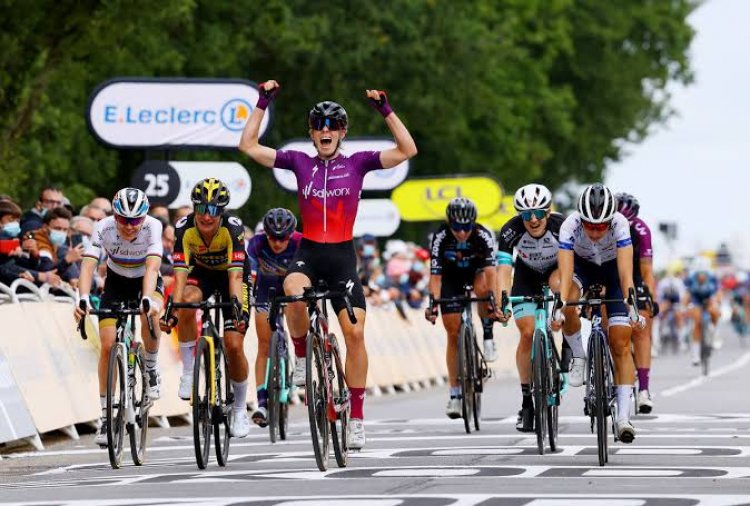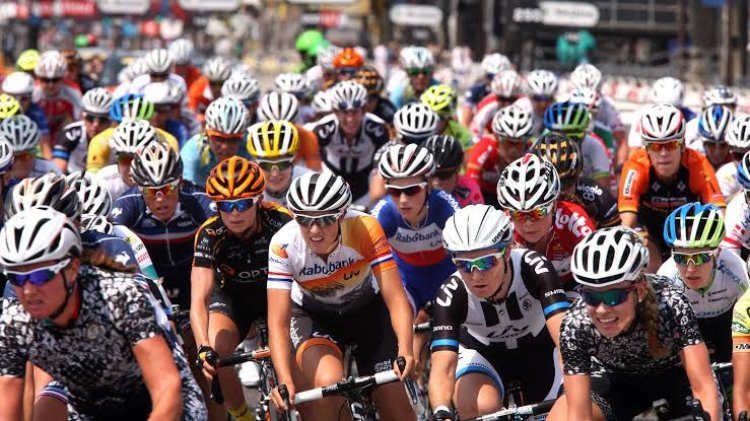After a 119 years, women’s Tour de France is here

The road always feels long and gruelling at the Tour de France, but for the female professional peloton in particular, it has been an interminably tough journey for a fair opportunity.
History will be made when the Tour de France Femmes heads out of Paris on Sunday, and no one will be more delighted, or proud, than an English woman standing among the crowds.
Three years ago, as founder of the InternationElles, Louise Vardeman led a group of female amateur riders around the entire 3,460km route of the Tour, covering every mountainous metre of climbing one day before Egan Bernal, Geraint Thomas and the men’s peloton.
“In fact, we did more than the men because it was the year of the crazy landslides which stopped them getting up to Tignes,” Vardeman recalls. “We had torrential rain, dangerous roads. It was freezing at times, almost sleet and snow.
“I have been rewatching some of the stories we recorded and I’d forgotten just how awful it was a lot of the time — so gruelling. We weren’t pros. We didn’t have the set-up so we were doing our own washing, cooking, very long transfers in a hot van. But it meant the world to us to be shouting the message that women should have the opportunity to have a prestigious race like the Tour de France.”

This three-week slog was Vardeman’s most high-profile, and exhausting, contribution to the campaign for women to be given their own version of the most famous bike race in the world, which was first held 119 years ago.
As far back as 1955, there was a five-day women’s race and there have been many versions since, including La Course, which shifted between one and two days over recent years.
But the Tour de France Femmes represents a fresh start by ASO, owners of the Tour — a week-long stage race which begins in Paris and finishes, more than 1,000km later, at the summit of the brutal Planche des Belles Filles eight days later. A total of €250,000 (about £213,00) in prize money is on offer.
Vardeman will be cycling out from London to Paris in under 24 hours to be there for the start on the Champs-Élysées and joining her fellow InternationElles to follow the race and celebrate the progress they fought for.
“I’m just so proud to have been involved in some of the campaigning to make it happen,” she says.
Remarkably, seven years ago Vardeman had barely ridden a bike, but a bad hip curtailed her running and a divorce was an incentive to throw herself at a new challenge. “I thought cycling people were weird in all this Lycra and then I became one of them,” she laughs.
Now she rides five days a week, covers up to 12,000km a year, and has represented Great Britain as an amateur while also juggling life as an events manager and mother of two boys.
And then there is the InternationElles campaign, which linked with their French equivalents, Donnons des Elles au Vélo, as part of the amateur push for advancing the women’s sport and a female Tour.
Amateur involvement mattered because, according to Vardeman, it could be difficult for leading female pros to kick up a fuss. “A lot of what we were saying, they could not risk their contracts by saying it,” she says. “We could be a bit cheekier. So we had messages from pros through social media letting us know they loved what we were doing.”
She says that the campaign has been notable for its positivity rather than protests. “We were really careful from the beginning not to be stepping on too many toes and talking in a negative way,” Vardeman adds. “We are all massive fans of the Tour de France. We love the Tour. We just want the opportunity shared with the female peloton. So it’s not saying, ‘This is terrible.’ It’s saying, ‘This is great and we want more of it.’ ”




















